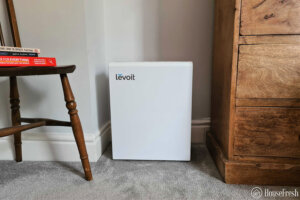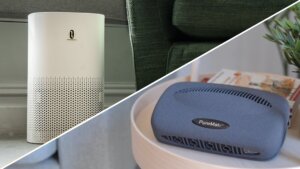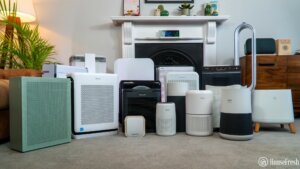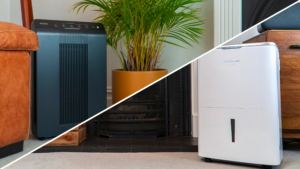When the pandemic was in full swing, we were advised to disinfect groceries and clean door handles after each touch to avoid surface transmission. But research later determined that surfaces were an unlikely transmission route for most people.
Many studies concluded that airborne transmission was the main way that SARS-CoV-2 spread. So, the primary focus for air purifier companies was to show how their products could kill and remove the virus from the air.
UV air purifiers were one such solution.
These air purifiers for the home appeared after it was discovered that UV light helps prevent the spread of hospital-acquired infections during the Covid-19 pandemic. But rather than cleaning the air and improving your health, UV purifiers can be dangerous and cause irreversible health problems if they produce ozone.
This article will cover how UV air purifiers work and the associated risks.
What is UV light?
Before we get into UV light air purifiers and the risks involved, we should know what UV light is.
We all know the dangers of UV-A and UV-B from sunbathing:
- UV-A gives you a good tan 😎
- UV-B can give you severe sunburn 🥵
UV-C is not often mentioned because the Earth’s ozone layer absorbs it before it reaches us. But UV-C light has been created artificially and is the same kind of light that is used in UV light air purifiers to kill bacteria and viruses in commercial devices used in hospitals and other large facilities.
How do UV light air purifiers work?
UV light air purifiers harness the power of UV-C light to inactivate airborne viruses and bacteria by altering or damaging their DNA.
If you have ever had sunburns, you know the effect of the sun’s UV rays on your skin: the DNA in your skin cells has been damaged, causing sunburn.
So, UV air purifiers do not kill viruses; they merely damage them to the extent they cannot reproduce, which is how a virus spreads. A virus is not a living organism but is made up of DNA and RNA, which it uses to infect the DNA of other cells.
When viruses have been subjected to UV-C light, their DNA and RNA are inactivated, preventing them from invading healthy organic cells.
On the other hand, bacteria are single-cell living organisms, meaning their DNA is essential to stay alive. As bacteria passes through the UV air purifier, its DNA is bombarded with UV-C light, damaging the DNA so that it cannot perform two main functions—transcription and replication. This prevents the bacteria from multiplying, spreading, and forming colonies throughout your body, which is the source of infections.
To be effective, a UV air purifier must be equipped with the right technology and produce UV light at a specific wavelength and intensity to inactivate any virus or bacteria.
UV-C light air purifiers and their associated health risks
The main problem with UV air purifiers is that they can leak UV-C light, which can cause damage to any living thing. To avoid this, many manufacturers use very low-powered UV-C lights that don’t create dangerous amounts but are useless for killing viruses and bacteria.
UV light can also cause ozone. Different wavelengths will adjust the amount created, but any ozone can be a risk to people with respiratory issues and is something you want to avoid in your home. According to the Environmental Protection Agency, ozone can cause chest pain, coughing, throat irritation and airway inflammation. Children, people with asthma and older adults are more likely to be negatively affected by ozone.
The Environmental Protection Agency (EPA) recommends not buying any air purifier that emits ozone.
Instead, the EPA recommends using upper-room UVGI devices fitted by professional HVAC experts and combined with HEPA filter-based air purifiers.
So, are UV light air purifiers effective at cleaning the air?
A 2021 review found that UV air purifiers using a HEPA filter may effectively remove bacteria from the air. That’s right, a lab experiment showed that UV-C combined with HEPA could help reduce viral count.
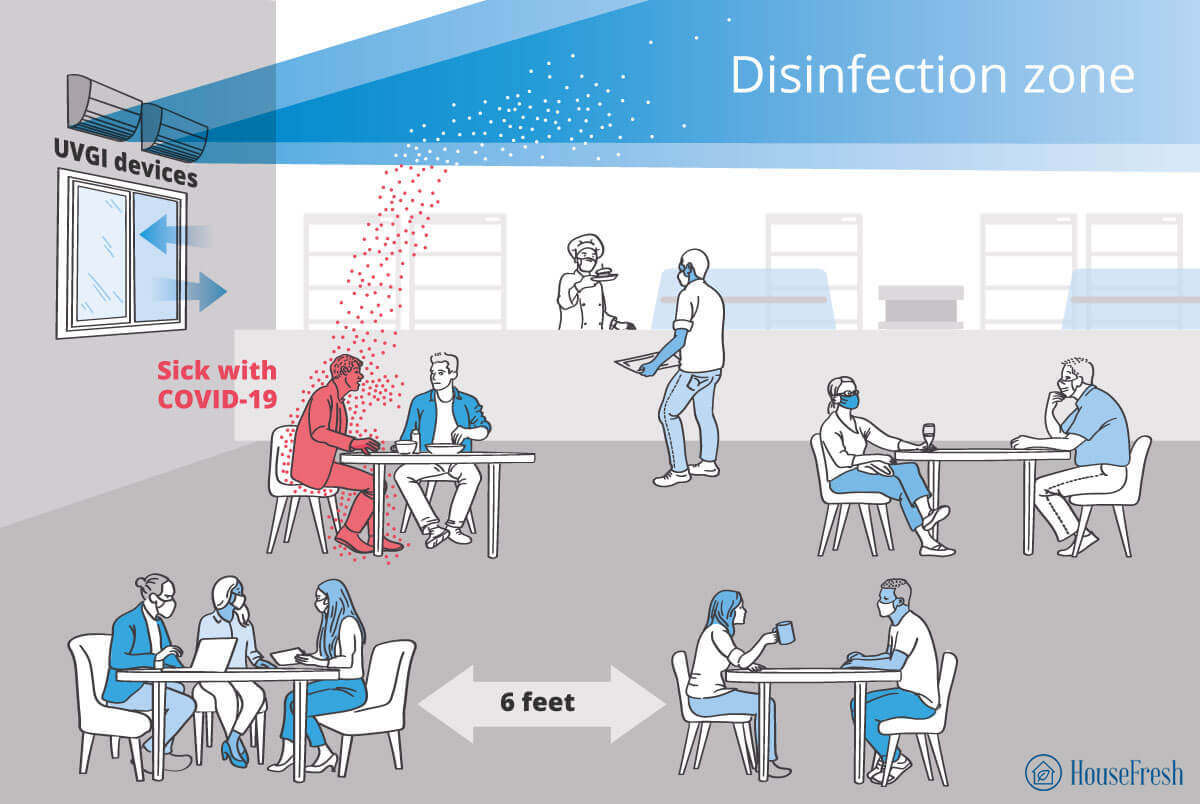
But here’s the deal:
The same study showed that UV-C alone did not affect particle count, and can only reduce particles when combined with HEPA filtration.
Interested to read more about this? I recommend you read our detailed article on the effectiveness of UV-C air purifiers.
HouseFresh doesn’t recommend UV light air purifiers

SOURCES
- Lewis, D. (2021). COVID-19 rarely spreads through surfaces. So why are we still deep cleaning? nature.com
- Greenhalge, T et al. (2021). Ten scientific reasons in support of airborne transmission of SARS-CoV-2. thelancet.com
- Institution of Mechanical Engineers. (2021). Hospitals to use UV air cleaners to tackle COVID-19 after IMechE develops standard for NHS. imeche.org
- Hammon, A et al. (2021). Should homes and workplaces purchase portable air filters to reduce the transmission of SARS-CoV-2 and other respiratory infections? A systematic review. plos.org
- Brazier, Y. (2019). Bacteria: Types, characteristics, where they live, hazards, and more.medicalnewstoday.org
- Environmental Protection Agency. (2023). Ground-level Ozone Basics. epa.gov
- Steadman, N. (2021). Asthma Symptoms: 7 Signs of Asthma You Ignore. thehealthy.comEnvironmental Protection Agency. (2018). Portable Air Cleaners and Furnace or HVAC Filters in the Home.epa.gov



